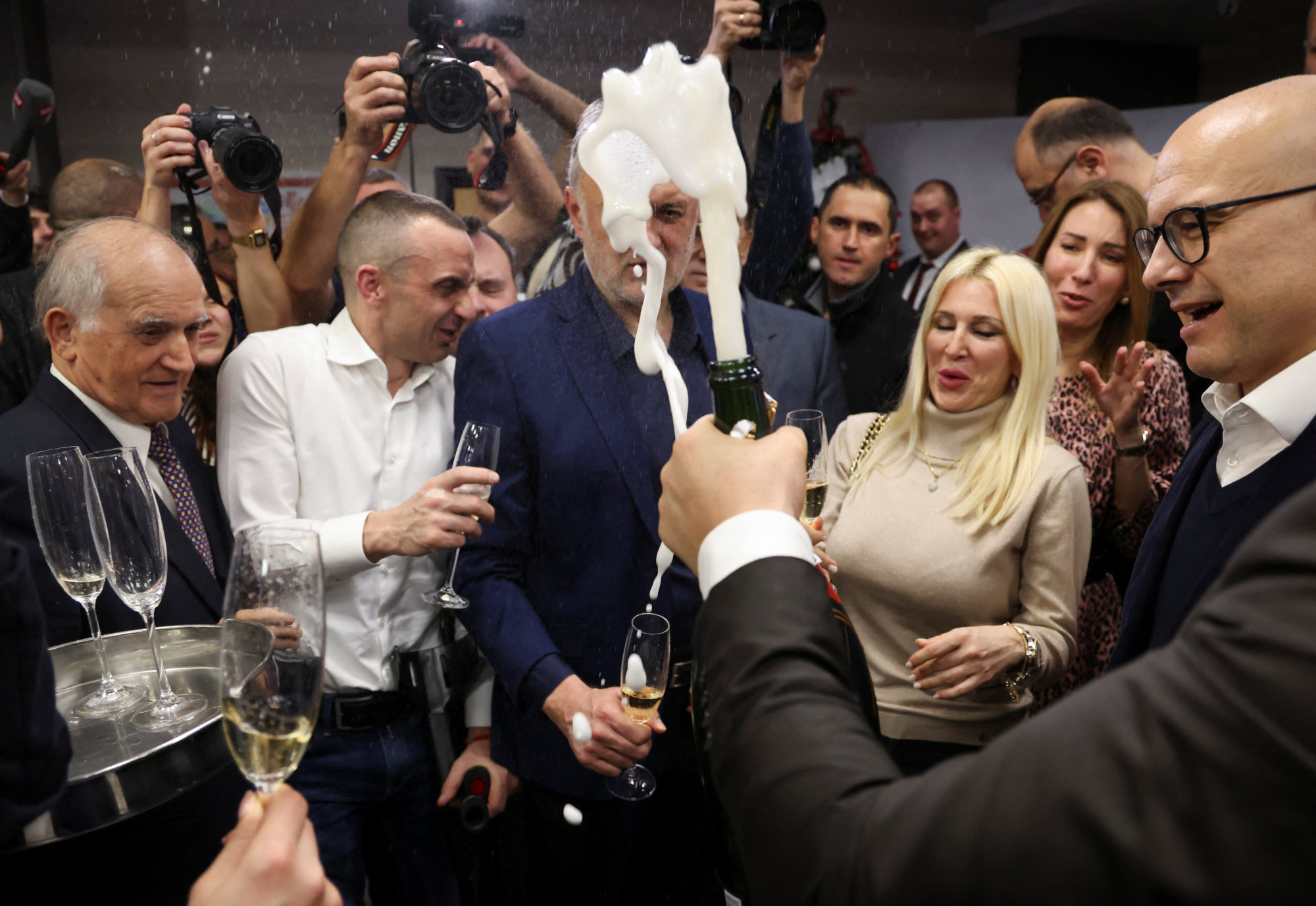“My job was to do everything in my power to secure an absolute majority in the parliament,” Vucic told reporters as he celebrated what he said was the SNS’s victory.
The right-wing SNS looked poised to expand their presence in the 250-seat parliament with Sunday’s results. During the last election in 2022, the party secured just 120 seats, resulting in a coalition government.
The SNS still faced potentially hard-fought municipal races in the capital Belgrade, particularly from the loose coalition of opposition parties and candidates running under the Serbia Against Violence banner.
Nato boosts presence in Kosovo with 600 UK troops as tensions rise
Nato boosts presence in Kosovo with 600 UK troops as tensions rise
That movement was formed in the wake of back-to-back mass shootings earlier this year. They spurred hundreds of thousands to take to the streets in rallies that morphed into anti-government protests over several months.
The contest was not without controversy, with the opposition complaining of foul play.
“There were a lot of irregularities,” said opposition leader Radomir Lazovic, citing alleged “vote buying” and “falsification of signatures”.
“We may have had the dirtiest electoral process,” he added.

Posts on social media also fuelled rumours that the government was allowing unregistered voters from neighbouring Bosnia to cast ballots illegally in the election.
Prime Minister Ana Brnabic dismissed the claims, accusing the reports of spreading chaos.
Vucic had been beaming with confidence as voting got under way on Sunday, predicting a landslide victory even then.
Serbia has a lot of important work to do in the period ahead,” he told journalists
The opposition put its hopes on a high turnout.
Bosnia’s Serb leader signs controversial law in threat to peace deal
Bosnia’s Serb leader signs controversial law in threat to peace deal
“I hope that by the end of the day, we’ll have a big turnout in Belgrade and all over Serbia, and that the voters will have the freedom to express their will,” said Dobrica Veselinovic, an opposition leader with the Serbia Against Violence movement.
Vucic was omnipresent ahead of the vote – plastered on billboards and skyscrapers and the focus of wall-to-wall coverage on news channels.
By the time polls opened at 7am local time, queues had already formed in Belgrade as people waited to cast their ballots.
“I came early to support our president, he must continue his work,” said Stojan Milenkovic, a 67-year-old retiree.
Others were hoping the contest would bring change to the country’s political scene.
“I hope the results will put an end to the devastation of our capital,” Milica Pavkov, a 28-year-old cashier, told Agence France-Presse.
Along the southern border, hundreds of ethnic Serbs from the former breakaway province of Kosovo crossed into Serbia to cast their votes.
The voters loaded on to more than a dozen buses and spent nearly two hours crossing the border, following the failure of Belgrade and the Pristina government to iron out a deal that would have allowed the Serbs to vote inside Kosovo.
Dozens of Nato soldiers hurt in Kosovo in clash with Serbs
Dozens of Nato soldiers hurt in Kosovo in clash with Serbs
Like many countries across the globe, Serbia has been battered by double-digit inflation.
To blunt the hard edges of rising prices ahead of the elections, Vucic unleashed a barrage of state spending including pension increases and cash payouts to the elderly.
He has also vowed to double average monthly salaries in the coming years, while further raising pensions.
Vucic has used his more than a decade in power to consolidate control over the levers of power, including de facto control over the media.
He called the snap elections in November, the latest example of how governments under his rule rarely serve out their term – a move critics say is designed to keep the opposition off balance.
The contest comes less than two years after the last round of presidential and parliamentary voting, which saw Vucic and the SNS tighten their grip on power.

